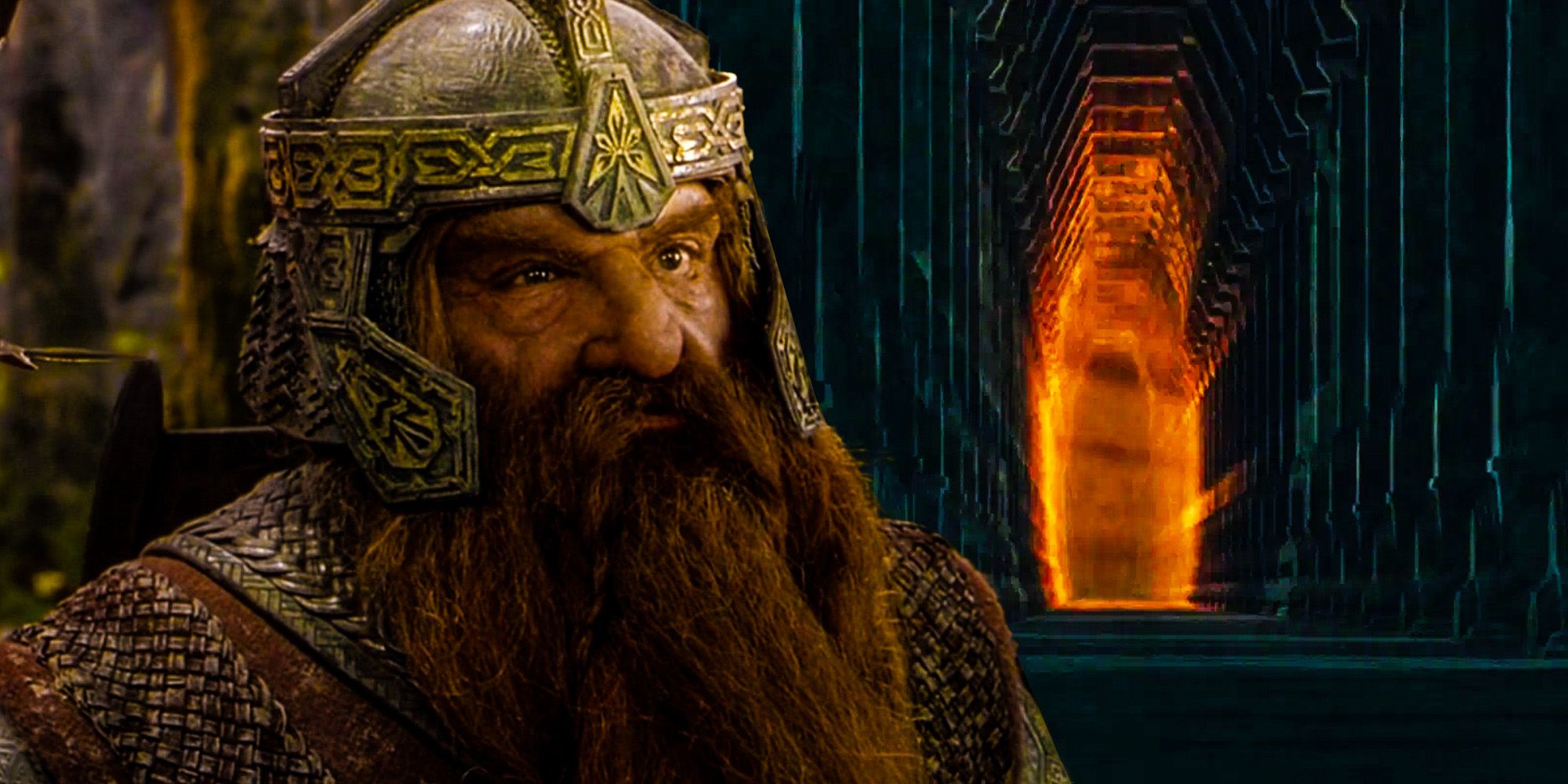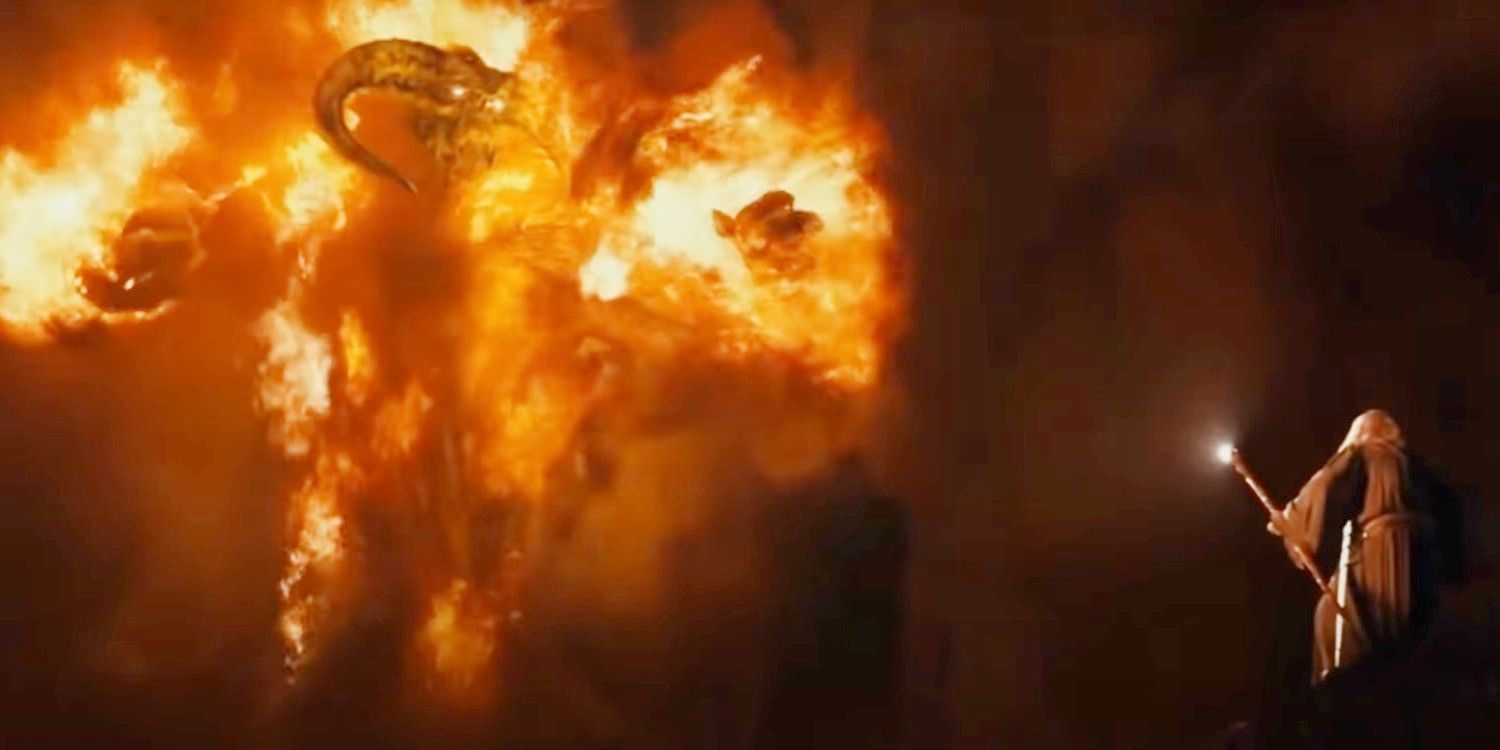The Balrog wreaked havoc on the Fellowship as the party journeyed through the Dwarf kingdom of Moria in the first Lord of the Rings film, but why was it unearthed in the first place? As Saruman clarifies Gandalf's reluctance when the group comes upon the passage: "Moria... You fear to go into those mines. The Dwarves delved too greedily and too deep. You know what they awoke in the darkness of Khazad-dûm... shadow and flame." The destruction wrought by that shadow and flame of which he speaks could have been prevented if only someone had checked the Dwarves' greed. So why didn't they?
The Dwarves of Middle Earth are characterized chiefly by their pride, their ambition, and their proclivity for mining and craftsmanship. Each of these worked to their detriment in the case of Moria, the kingdom of Khazad-dûm — the greatest kingdom ever built by the Dwarves. Indeed, Gimli remarks upon its prosperous and impenetrable quality as the party arrives. But in the many years leading up to the Fellowship's journey, the kingdom was undone by greed, as the Dwarves mined for mithril so deep, that they awoke an unnamed terror. That creature decimated their numbers and slew King Durin VI, earning itself the title "Durin's Bane," and lying in wait for Gandalf and company.
Had the Elves or the kingdoms of Men possessed the foresight, they might have prevented the disaster that extinguished the once-fruitful Dwarf kingdom. At the very least, they could have nipped the issue of the Balrog in the bud, well before the mines of Moria were overrun by Orcs who worshiped the creature as a deity, posing an existential threat to the Fellowship centuries later. But even if notice was given to the Durin's folk, there remains one problem: Dwarves are famously stubborn.
"Save me from the stubbornness of Dwarves!" remarks Gandalf in The Hobbit: An Unexpected Journey (2012), illustrating one of the fundamental flaws in dealing with Durin's folk. In fact, the entire Hobbit movie trilogy serves to demonstrate the problem with questioning why no one stopped the Dwarves. Even if warnings had been issued, it would mean an affront to the Dwarves' way of life to suggest they restrain their mining. It's hard to imagine such an approach would be successful.
If there was any chance at preventing the Dwarves from their own greed, much trouble could have been avoided. Moria may have yet been a prosperous kingdom upon the Fellowship's arrival, and neither Orcs nor the Balrog would have had the opportunity to make the caves beneath the Misty Mountains their stronghold. But because of the fundamental greed of the Dwarves and the inability of Middle Earth political figures to adequately work for the betterment of their collective peoples, lives were lost and evil was bred. Such are the tensions at the heart of The Lord of the Rings. After all, what would a story as timeless as Tolkien's be without conflict?


